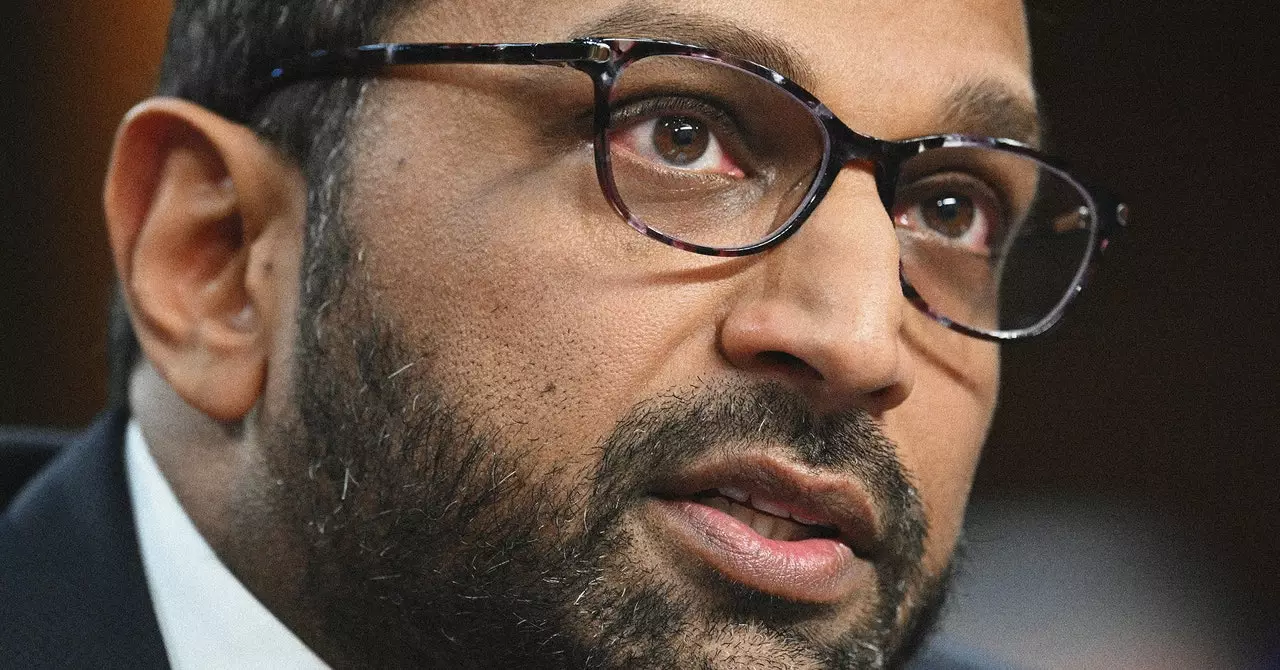The career trajectory of Kash Patel has garnered considerable attention, particularly in light of his nomination as the head of the Federal Bureau of Investigation during the Trump administration. However, the intricacies surrounding his financial interests, particularly in relation to the controversial fashion giant Shein, raise profound ethical questions about the intersection of business and government. Patel’s financial disclosure and the circumstances surrounding his consultancy work for Shein reveal a situation that merits deeper examination.
Kash Patel reported ownership of stocks valued between $1 million and $5 million in a company that manages Shein, an online retailer notorious for its fast-fashion practices and questionable labor standards. The implications of such holdings cannot be overlooked, especially when considering that Patel has stated he does not intend to divest from this stake if confirmed as FBI chief. This decision opens the door to potential conflicts of interest, particularly with Shein’s operational practices under scrutiny for unethical conduct.
Upon further analysis, it is notable that Patel began consulting for Shein shortly before the company engaged a prominent lobbying firm, where Pam Bondi, a key figure in the Trump administration, was employed. This timing raises critical questions: Was Patel’s consultancy aimed at securing favorable outcomes for Shein amidst its struggles for regulatory approval, or is it merely coincidental?
Patel’s financial interests are complex due to the nature of restricted stock units (RSUs) he received from Shein. This form of compensation binds an individual to the company’s performance over time, as they typically cannot be accessed until specific vesting periods are completed. Patel’s RSUs began vesting in early February 2024 and are set to pay out quarterly. While legally he may not be required to divest unless a conflict of interest arises, the optics of his continued financial ties to Shein are concerning.
Jordan Libowitz from Citizens for Responsibility and Ethics in Washington has articulated the unease that surrounds Patel’s position. Despite the absence of immediate legal ramifications, the perception of a conflict of interest weighs heavily on public opinion and a future FBI leader’s ability to operate impartially. The argument for Patel to divest or recuse himself from matters involving Shein is steeped in a broader call for accountability among public officials, highlighting the ethical implications that such entanglements create.
As Patel navigates the waters of possible confirmation, it’s essential to consider the lobbying efforts surrounding Shein. The company has faced significant hurdles in achieving a public listing, not only due to its controversial business practices but also due to scrutiny from political influencers such as former Senator Marco Rubio. His call for the SEC to intervene against Shein’s IPO signals concern among legislators about the company’s operations and transparency, further complicating its relationship with prospective investors and regulators.
The role of Elite Depot, a Cayman Islands entity linked to Shein’s ownership, adds another layer of complexity. This parent company, which Patel began consulting for, serves as the controlling party of Shein, according to various audit and regulatory filings. The corporate structure raises additional questions regarding accountability, especially given the murky waters of offshore corporate governance.
The interplay between high-level government appointments and corporate interests exemplifies a troubling dynamic that can undermine public trust in governance. Kash Patel’s situation is emblematic of larger systemic issues where personal and financial interests intertwine with policy making. As the Senate evaluates potential conflicts in Patel’s confirmation process, it underscores the need for transparency and ethical conduct in public office.
Kash Patel’s nomination and his financial engagements reveal an intricate web of corporate connections that could severely impact his capability to lead the FBI. As the discourse around ethics and governance evolves, it becomes increasingly evident that safeguarding public trust must remain paramount. The scrutiny surrounding Patel serves not only as a litmus test for his integrity but also as a reflection of the broader responsibility held by public officials to prioritize the interests of the people over personal gain.

